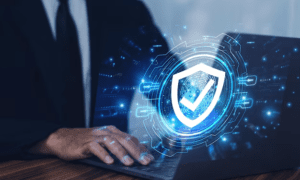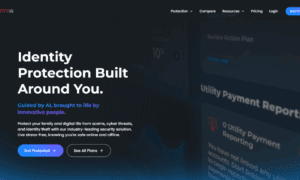In today’s digital age, online security and privacy have never been more critical. With cyber threats lurking around every corner and data breaches becoming more common, it’s essential to take proactive measures to protect your personal information. One of the most effective ways to safeguard your online presence is by using a Virtual Private Network (VPN).
But how do you know if you need a VPN right now? There are several telltale signs that indicate it’s time to enhance your online security. From accessing public Wi-Fi networks to bypassing geo-restrictions, these indicators can help you determine if a VPN is a necessary addition to your digital toolkit. Let’s explore the top five signs that you should consider investing in a VPN immediately.
Online Privacy Concerns
The rise in cyber threats highlights the need for enhanced online privacy. A VPN provides robust protection against various digital dangers.
Increased Online Tracking
Digital advertisers and websites track users’ online activity to target them with personalized ads. This tracking compromises personal privacy and can lead to unwanted exposure. For instance, using cookies, websites collect and store data on browsing habits and preferences without explicit consent. A VPN masks the IP address, making it difficult for trackers to gather this information.
Data Breaches and Hacks
Data breaches and cyberattacks are becoming more frequent and sophisticated. High-profile cases involve millions of users’ information being exposed to malicious hackers. For example, breaches affect services like social media platforms, financial institutions, and healthcare systems, putting sensitive data at risk. A VPN encrypts online traffic, reducing the likelihood of personal information being intercepted during these attacks.
Access to Restricted Content
A VPN helps users access content that may be restricted due to their geographic location. This tool enables them to bypass these limitations and unlock a wider range of online experiences.
Geo-restrictions on Streaming Services
Various streaming services restrict content based on geographic regions. Platforms like Netflix, Hulu, and BBC iPlayer offer different libraries for different countries. By using a VPN to mask the IP address, users can appear to be in another country and access these varied content libraries. For instance, a user in the US can access the UK-exclusive content on BBC iPlayer through a VPN. This provides viewers with more diverse entertainment options.
Censorship and Information Control
Certain countries impose censorship on internet usage, restricting access to information and social media platforms. Governments or organizations often block websites and filter search results to control the flow of information. Using a VPN allows individuals in these regions to circumvent censorship. For example, a VPN can grant access to platforms like Facebook and Twitter for users in countries where these sites are banned, or it can help you unblock games. This helps maintain access to diverse and unrestricted information sources, promoting free expression and communication.
Public Wi-Fi Usage
Public Wi-Fi networks offer convenience but come with significant security risks. Using a VPN when connected to these networks can safeguard your information.
Security Risks of Public Wi-Fi
Public Wi-Fi networks lack robust security measures, making them prime targets for hackers. Many public networks, such as those in coffee shops and airports, don’t encrypt user data, which creates vulnerabilities. Hackers can easily intercept sensitive data like login credentials, financial information, and personal messages. According to Norton, 87% of consumers have potentially risked their data through public Wi-Fi usage.
Protecting Sensitive Information
Encrypting your online traffic through a VPN provides a robust defense against threats on public networks. A VPN hides your IP address and encrypts data, making it inaccessible to potential interceptors. This protection is crucial when performing sensitive activities like online banking or accessing corporate emails on public Wi-Fi. The encryption keeps hackers and unauthorized users from accessing your personal or business data, ensuring your information remains secure.
These measures not only protect your data but also maintain your privacy, even in less secure environments like public Wi-Fi hotspots.
Avoiding ISP Throttling
Internet Service Providers (ISPs) often limit connection speeds to manage network congestion. By using a VPN, users can avoid such throttling and enjoy consistent performance.
Signs of Bandwidth Throttling
- Slow Internet During Peak Hours: If connection speeds drop significantly in the evening or other high-traffic times, throttling might be the cause.
- Inconsistent Speeds: Experiencing fluctuating speeds can indicate throttling, especially for specific websites or apps like streaming platforms and gaming services.
- Long Buffering Times: Higher buffering times on streaming platforms such as YouTube or Netflix, despite a high-speed plan, often result from ISP throttling.
- Different Speed Results: Utilizing speed-test tools frequently shows varying speeds depending on the test server location, another hint of throttling.
- Limited Bandwidth on Certain Activities: Noticing consistent low performance during data-heavy activities like HD streaming and large file downloads suggests throttling.
How VPNs Help
VPNs encrypt internet traffic, making it difficult for ISPs to identify the type of data being transmitted. By masking online activity, VPNs prevent ISPs from selectively slowing down specific services or types of content. This allows users to maintain a stable connection and consistent speeds for all online activities. VPNs also enable encrypted connections, ensuring privacy and protecting sensitive information from potential throttling triggers.
Secure Remote Work
In today’s digital workspace, secure remote work has become essential. A VPN provides the necessary encryption to protect sensitive data and ensure employee privacy.
Protecting Company Data
A VPN is crucial for protecting company data when employees work remotely. It encrypts the data transmitted between employees’ devices and company servers, preventing unauthorized access and reducing the risk of data breaches. When employees access company resources from various locations, a VPN ensures the data remains confidential and secure.
For example, an employee accessing sensitive financial information or client details from a home network can inadvertently expose this data without a VPN. Cybercriminals can easily intercept unencrypted data, leading to potential financial losses and reputational damage for the company. Using a VPN mitigates these risks by adding a robust layer of encryption, making it harder for attackers to steal valuable information.
Ensuring Employee Privacy
Ensuring employee privacy is another vital aspect of secure remote work. A VPN masks employees’ IP addresses, preventing ISPs and other entities from tracking their online activities. This anonymity is crucial, especially when employees connect from public or shared networks. When workers access email or share files over these unprotected networks, their activities can be monitored or intercepted without proper encryption.
In addition, remote employees often use personal devices for work purposes. These devices may not have the same level of security as company-provided hardware, increasing vulnerabilities. A VPN closes this security gap by providing a secure connection, even if the device itself lacks advanced security features. This way, employees’ online actions remain private and protected, ensuring both personal and professional activities stay confidential.
Conclusion
In today’s digital landscape, online security and privacy are more critical than ever. A VPN offers a robust solution to protect personal information and ensure a safer online experience. Whether it’s securing data on public Wi-Fi, bypassing geo-restrictions, or avoiding ISP throttling, a VPN provides essential benefits. As cyber threats continue to evolve, investing in a VPN is a proactive step toward safeguarding your digital life. Don’t wait for a security breach to take action; enhance your online security with a VPN today.



































